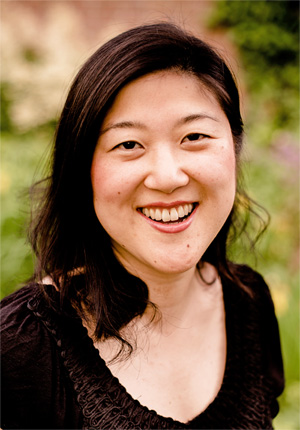I’ve written before about how I have been planning on becoming a mentor to a newly arrived refugee in my local community. The journey has been slow at getting started in terms of actually connecting with my mentee despite numerous thwarted efforts. Meanwhile I have attended the monthly Stammtisch (regular’s table) for all of the mentors of the organisation that has been coordinating the many efforts of welcoming, housing, and integrating the refugees arriving to the shelter in our neighbourhood.
The cafe where the meeting was held was packed. I saw the husband of a close friend of one of my daughters and small talked with a woman whose child used to go to our kindergarten. During the first hour of the meeting, we received lots of information on what hoops we would likely have to jump through while searching for a flat for our mentees to live, whom best at each government agency to try to speak to, and an update on the Arbeitsintegration or integration into the work force efforts.
About thirty people were there, mostly older people and mostly German in the classical sense. I was however excited to see at least one other person of color in the room. Being an ethnic minority in Germany, I’m sensitised to my environment in this aspect. (I recently wrote about my experience raising my Asian kids in southern Germany for Korienation.) The last time I was in London which was in December, I was appreciating how diverse and multicultural the people were and knew that beyond humanitarian reasons, I welcomed the new wave of residents and future citizens in Germany in order to further diversify Germany.
During the course of the meeting, when the volunteer coordinator publicly addressed the other person of color in English, I realised that he was a refugee. Everyone was nodding in appreciative agreement as he explained that since it was his initial three months in Germany, English and Deutsch were getting mixed up in his head but learning the language was critical to his living in Germany. He wanted to be able to work and said that staying at home doing nothing was not an option. He also expressed his thanks to our community for all of the help and the warm welcome.
Once the formal part of the meeting was over, I made a b-line to the other corner of the room where I quickly made my acquantaince with Jamal from Syria. His mentee was busy talking to the person on his other side in German, and nobody else was talking to Jamal. He was instantly open and delighted that I was speaking to him, especially in English. I quickly learned more about him. He had been a lawyer in Syria and was keen to get his wife, 7-year-old son and brother from Ankara to Germany, he thinks that Assad is crazy and that Kim Jong Eun is his brother. I laughed and agreed.
The organisation that had brought us all together that evening had done a thoughtful job of considering the many aspects of supporting refugees: matching volunteers with needs, coordinating events and regular meetings, and providing helpful information sheets on how to build a relationship with your mentee. For example, don’t ask at the first meeting: how was your trip here? Did you come here on a perilous and traumatic boat ride over the Mediterranean? I was pretty impressed with how carefully this had all been thought through, and I thought, well done, Deutschland. Wir schaffen das!
In the meanwhile, a woman walking by, asked me if I knew someone called Oberdorfer.
No, I don’t know who Frau Oberdorfer is.
Oh, because I had heard that she was working with a Chinese woman.
My inner monologue: Oh, boy. Here we go.
Don’t you speak Chinese?
Trying hard not to roll my eyes here: No, I don’t speak Chinese. Inner monologue: Why would I speak Chinese? And perhaps your eyes did not allow you to hear, but I am speaking flawless American English with Jamal right now.
Oh, Deutschland. We still have a ways to go, but bless you for moving in the right direction. Wir schaffen das.
My new friend Jamal promised to cook my family and me a meal. We exchanged numbers. My heart was warmed despite the distracting Chinese-speaking assumption. Jamal was so grateful to our neighbourhood and to all of the kindness he had encountered. I reflected with him that I am grateful that I am in a community that is happy and secure enough to want to open and share the abundance we have. We are in a good place.

***
This is my last German Way blog post as a regular blogger. I’ve been doing this since 2009 and was one of the first bloggers of this site. Shortly before I married my German husband and moved to southern Germany in 2005, I stumbled upon the German Way Forum after combing the internet for anything I could find on how to thrive as an expat in Germany. It was with great gratitude that I followed a thread on how a foreigner could most conveniently and economically marry a German. I think my now husband and I must have saved a couple of thousand euros and hassle by combining an already planned trip to visit my parents with a trip to the county hall. It was the first of many helpful tips, connections and friendships that I made through the German Way for which I will remain grateful. Thank you especially to Hyde Flippo for creating this forum in its many forms and giving me an opportunity to play an active role in it.
– Jane



0 Comments